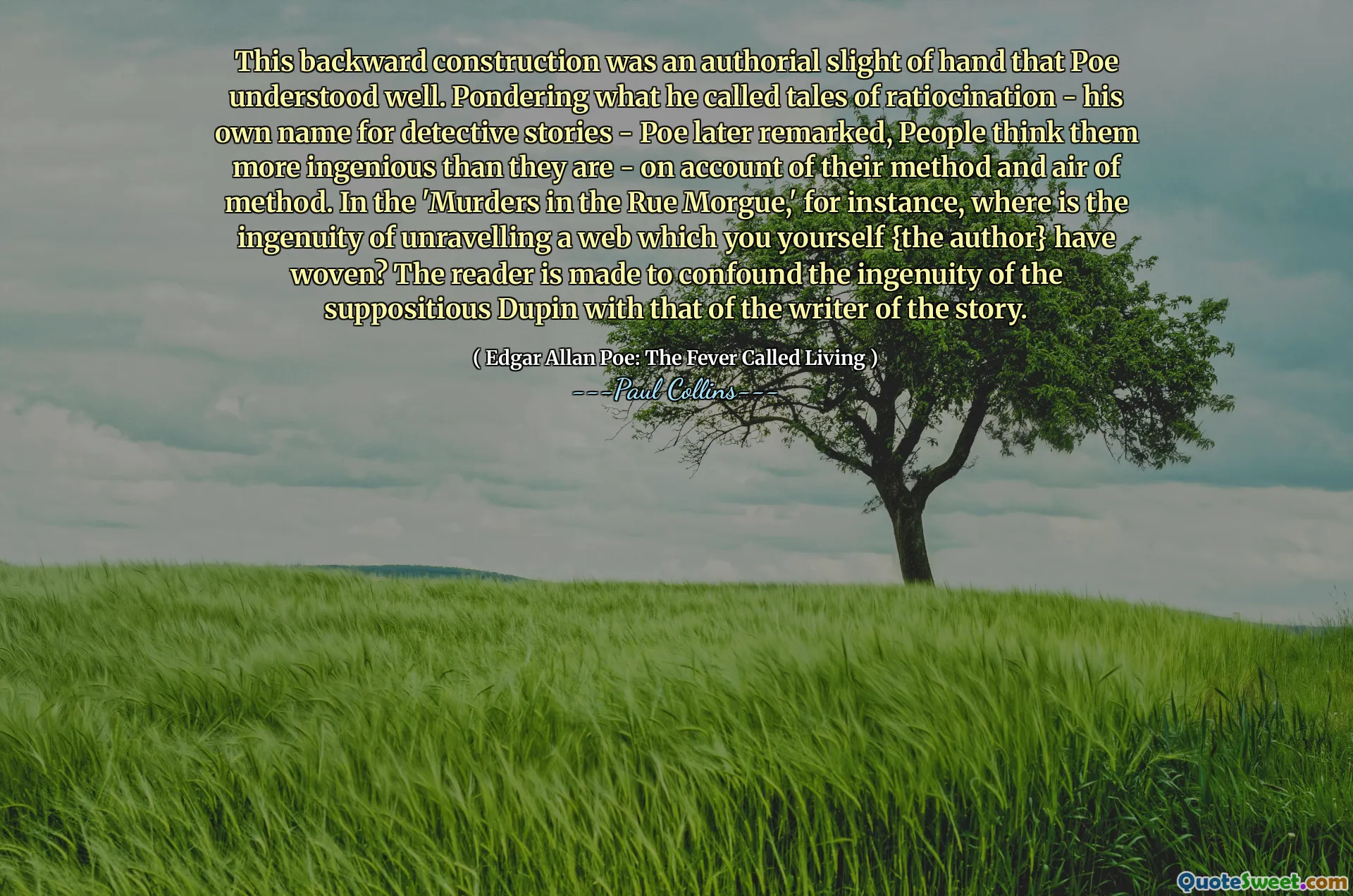
This backward construction was an authorial slight of hand that Poe understood well. Pondering what he called tales of ratiocination - his own name for detective stories - Poe later remarked, People think them more ingenious than they are - on account of their method and air of method. In the 'Murders in the Rue Morgue,' for instance, where is the ingenuity of unravelling a web which you yourself {the author} have woven? The reader is made to confound the ingenuity of the suppositious Dupin with that of the writer of the story.
The quote from Paul Collins highlights a profound insight into Edgar Allan Poe's awareness and critique of the detective story format, especially as he himself contributed to its foundation with tales like 'The Murders in the Rue Morgue.' Poe recognizes a kind of meta-fictional transparency: the detective's brilliance is, in a sense, an illusion created by the writer's deliberate design. The so-called ingenuity belongs not just to the fictional detective but also to the author, who carefully constructs the mystery and its resolution. This sheds light on how readers often attribute a detective’s methodical unraveling of clues as a mark of true ingenuity, when it is, fundamentally, the author’s meticulous narrative craftsmanship at work.
This observation invites readers and critics alike to reevaluate the detective genre and its distractions. The 'air of method' that Poe references may captivate the reader and imbue the story with an exciting intellectual puzzle. Yet, understanding this as a 'slight of hand' emphasizes the layered artifice of storytelling. Poe's reflection reveals his subtle acknowledgment of the storytelling mechanics that engross readers while allowing the author to maintain control over the narrative’s outcome.
In a broader literary context, this resonates with discussions on narrative authority and reader expectation. The interplay between the fictional detective’s intellect and the hidden hand of the author complicates the notion of originality and creativity in genre fiction. This not only demystifies the detective’s role but also elevates the writer’s role as the ultimate mastermind behind the narrative. Through this, Collins not only deepens our appreciation for Poe’s craftsmanship but also challenges the reader to think critically about how stories are constructed and consumed.






